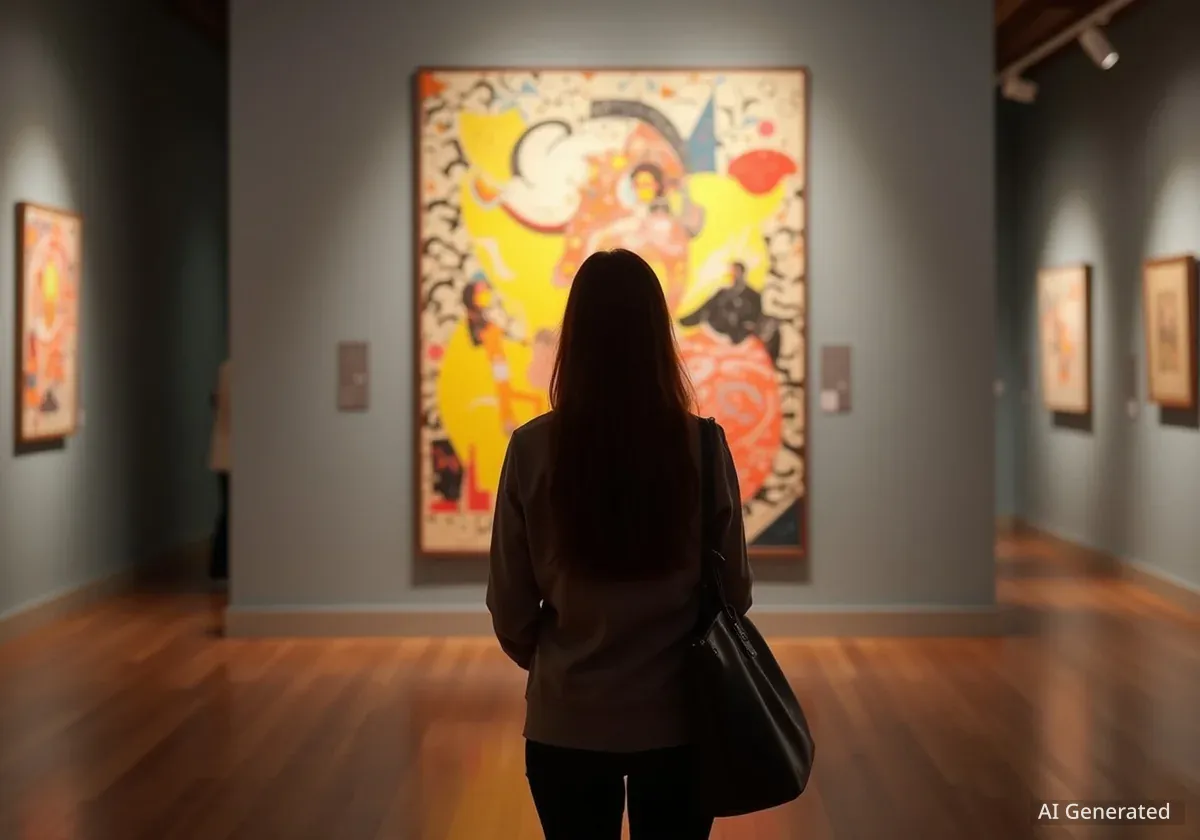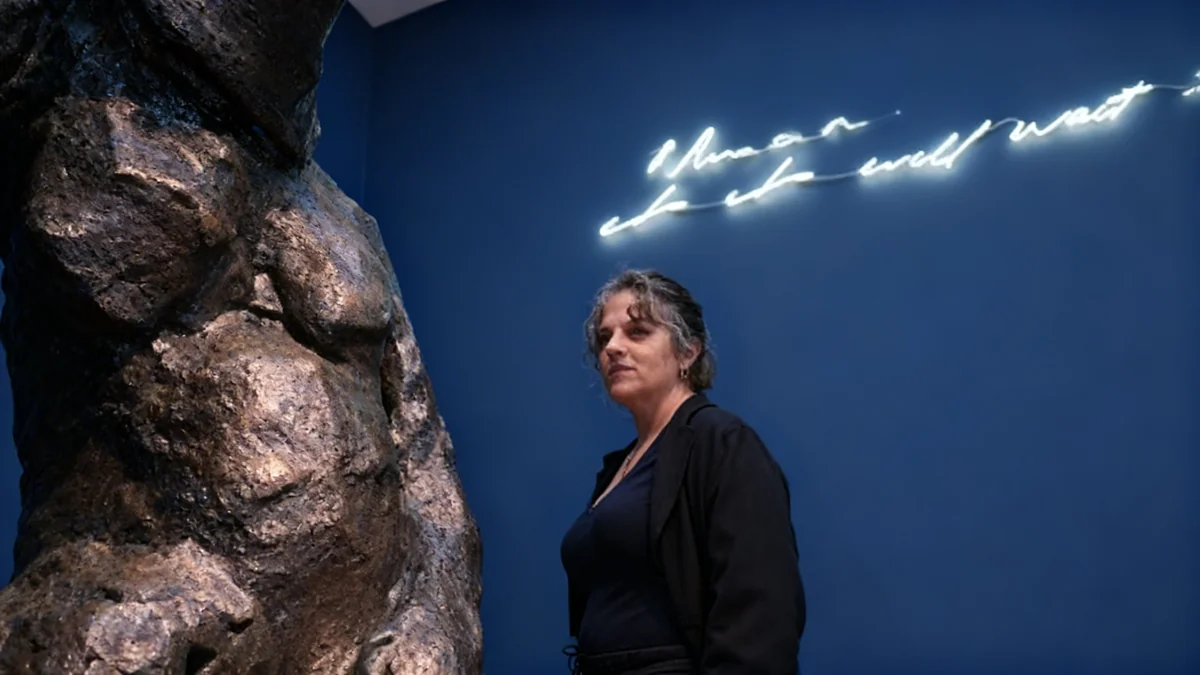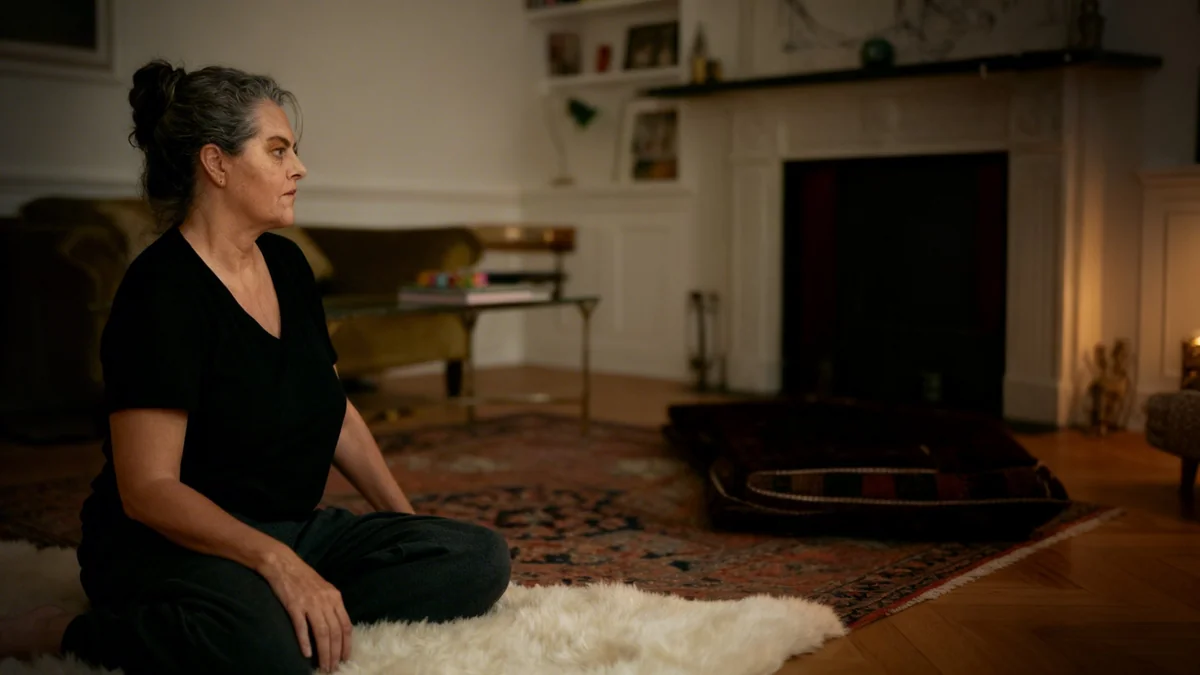An exhibition celebrating the life and artwork of Deb Koffman, titled 'Shine a Light: The Art and Life of Deb Koffman,' will open at the Norman Rockwell Museum in Stockbridge, Massachusetts. The exhibit is scheduled to run from Saturday, November 8, through June 7 of the following year. Koffman, a prolific artist and author, explored universal human challenges through her distinctive blend of images and text, offering tools for self-reflection and personal growth.
Key Takeaways
- Deb Koffman's exhibit opens November 8 at the Norman Rockwell Museum.
- The exhibition runs until June 7, featuring a wide range of her work.
- Koffman's art combines words and images to address common human struggles.
- She integrated Buddhist teachings and therapeutic methods into her creative process.
- The artist's work is described as timeless and universally relevant.
Celebrating a Unique Artistic Vision
Deb Koffman's work is recognized for its unique ability to connect with people. Russell Lord, Chief of Curatorial Affairs at the Norman Rockwell Museum, highlighted this aspect. He noted that Koffman's art addresses many challenges people face but often keep private. Her pieces provide viewers with methods to confront these issues.
The exhibition will feature pieces from her 2001 series, "Food for the Soul," including works titled "Love" and "Joy." These early pieces demonstrate Koffman's consistent approach to her art, which focused on emotional well-being and personal understanding.
Artist Profile: Deb Koffman
- Born: Montreal, Canada
- Education: Rhode Island School of Design (Illustration)
- Settled in Berkshires: 1988
- Opened Gallery: Housatonic, 1993
- Died: February 2021, at age 64
Koffman's Journey and Influences
Koffman moved to Berkshire County in 1988. Five years later, in 1993, she established her own gallery at 137 Front Street in Housatonic. This space became a hub for her creative output and interaction with the community.
Her career included writing several books. Notable titles include "The Blank Page," "Drawing Out The Demons," and "Soul Support." These books, like her artwork, blended visual elements with reflective text. They offered guidance on processing emotions and experiences.
"Koffman espouses a central philosophy that makes her tick: emotions, people, experiences, projects; they all need processing," wrote Hannah Van Sickle in a 2016 artist profile for The Berkshire Edge.
Koffman's time in the Berkshires exposed her to new ideas. She explored Buddhist teachings, neuro-linguistic programming, and various therapeutic modalities. These concepts deeply resonated with her, offering new ways to understand and manage emotions. She found these ideas "so incredibly interesting [when] nothing had ever interested [her] before," leading to a significant transformation in her life and art.
Art as a Tool for Self-Discovery
From September 2016 to October 2020, Koffman contributed a regular feature to The Berkshire Edge. Titled "SOUL SUPPORT," this series combined her artwork with insightful text, further extending her reach and message to a wider audience. This consistent public engagement highlighted her dedication to sharing her philosophy.
Koffman passed away in February 2021 at the age of 64 from metastatic breast cancer. Her own words, published in her obituary, offer insight into her artistic motivation. She wrote about getting "tired of doing what I was supposed to do" and needing to discover "what was right for me."
Her art became a personal compass. She described how she used her creations to remind herself of her truths. "When I see what I’ve created it touches my heart. It comes from my heart and miraculously it always touches me again," she wrote. This process was deeply personal, a "gift to myself," but she also recognized its impact on others.
Continuing Legacy
Koffman's former gallery in Housatonic now houses the Center for Peace Through Culture, established in 2022. Some of her artwork remains on display there, continuing to inspire visitors. A message that read, "It's OK to Pause," was prominently displayed outside her two-story building, reflecting her enduring philosophy.
Universal Themes and Lasting Relevance
Laurie Norton Moffat, Director and CEO of the Norman Rockwell Museum, described Koffman's vision as "very unique." Moffat explained that Koffman dealt with personal struggles, including depression, and openly shared these experiences. She sought knowledge in yoga practices and Eastern philosophies to cope.
Koffman then used images and words to capture the helpful thoughts and feelings she gained from these methods. This approach allowed her to create art that was both deeply personal and universally accessible. Her work crossed various mediums, including children’s picture books, signs, and posters.
"I think that her creative approaches all call out to people in their basic humanity," Moffat stated. "In their own way, I think that her artwork is timeless. The issues that she brings forward are just something that will always be relevant."
Russell Lord echoed these sentiments. He noted that Koffman's work is often seen as inspirational and motivational. He believes this power comes from her own journey of facing and addressing challenges. Her art provides tools for others to do the same.
Humor was a crucial element in Koffman's work. She believed it helped people absorb positivity. This, in turn, allowed them to move forward instead of getting stuck in difficult situations. Her light-hearted drawings and the integration of images and text make her messages approachable and memorable.
The Norman Rockwell Museum's exhibition offers a comprehensive look at an artist who used her personal journey to create art that resonates deeply with the human experience. Her legacy continues to offer comfort and guidance through simple yet profound messages.




